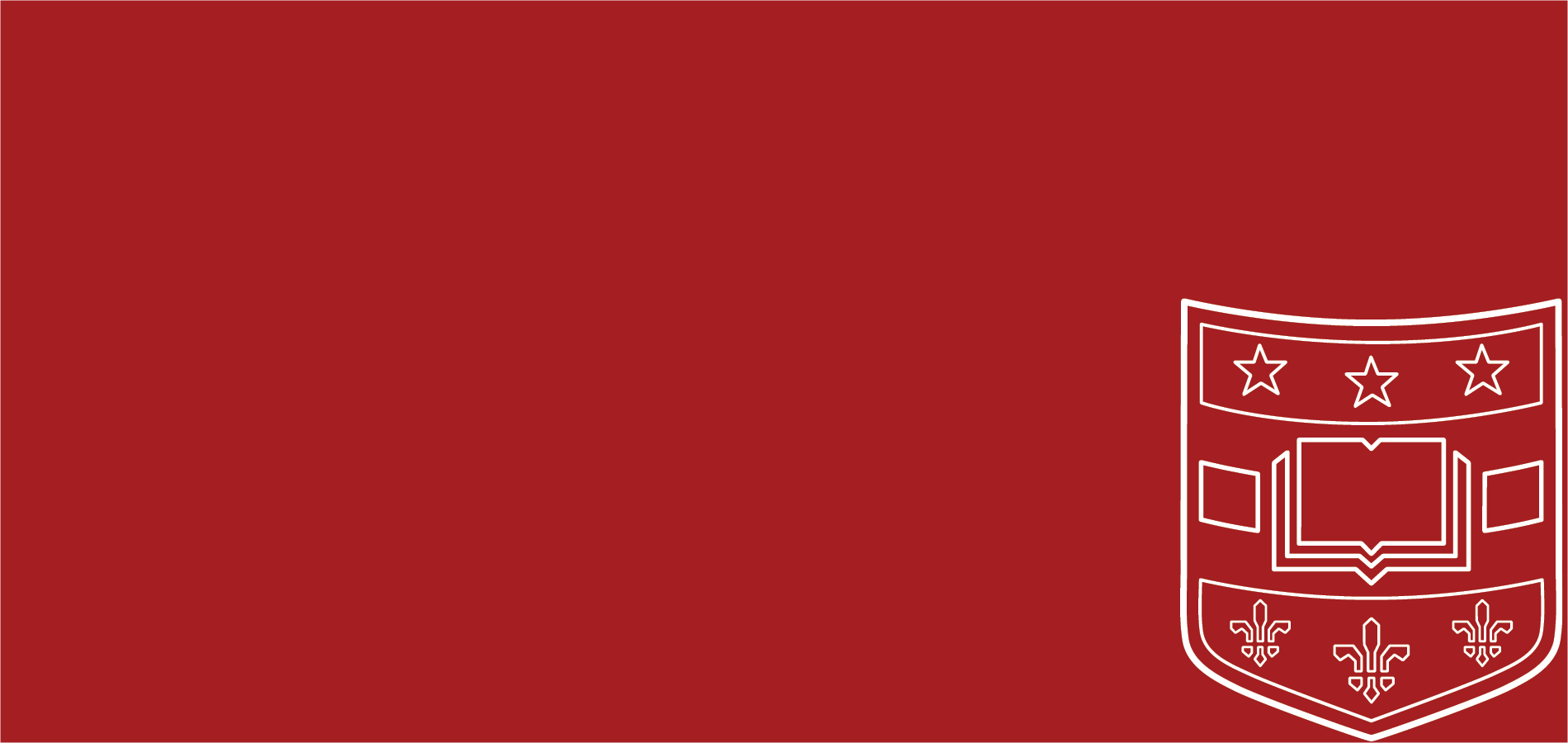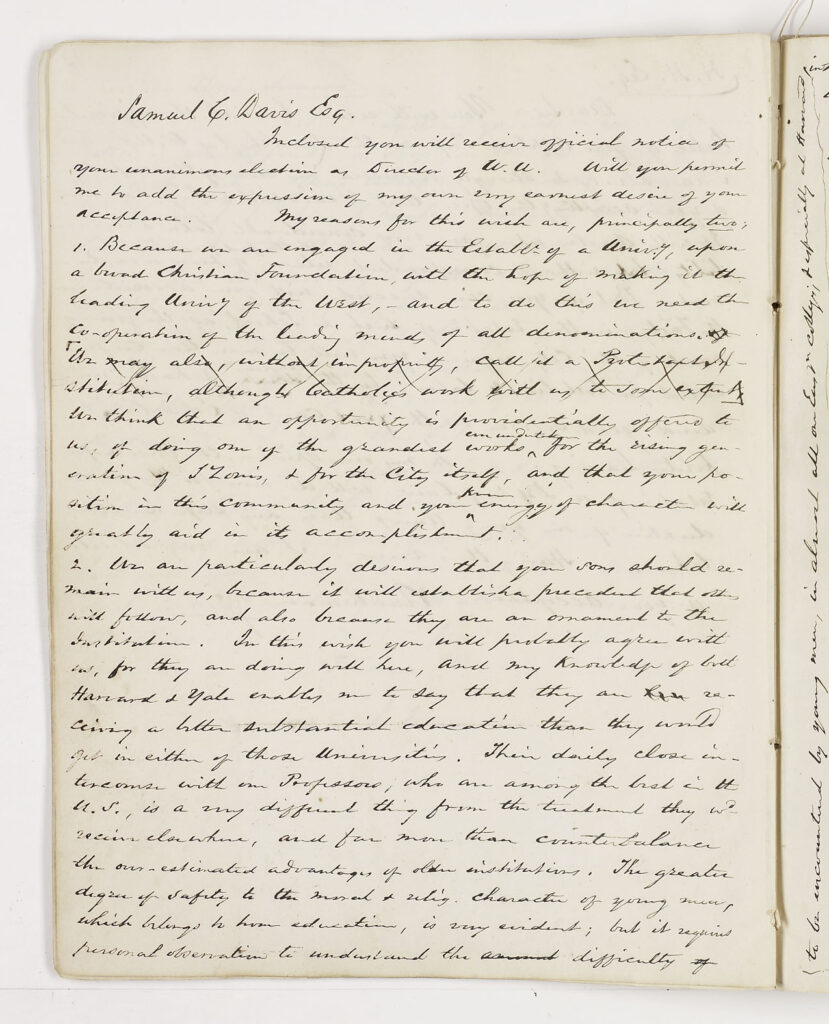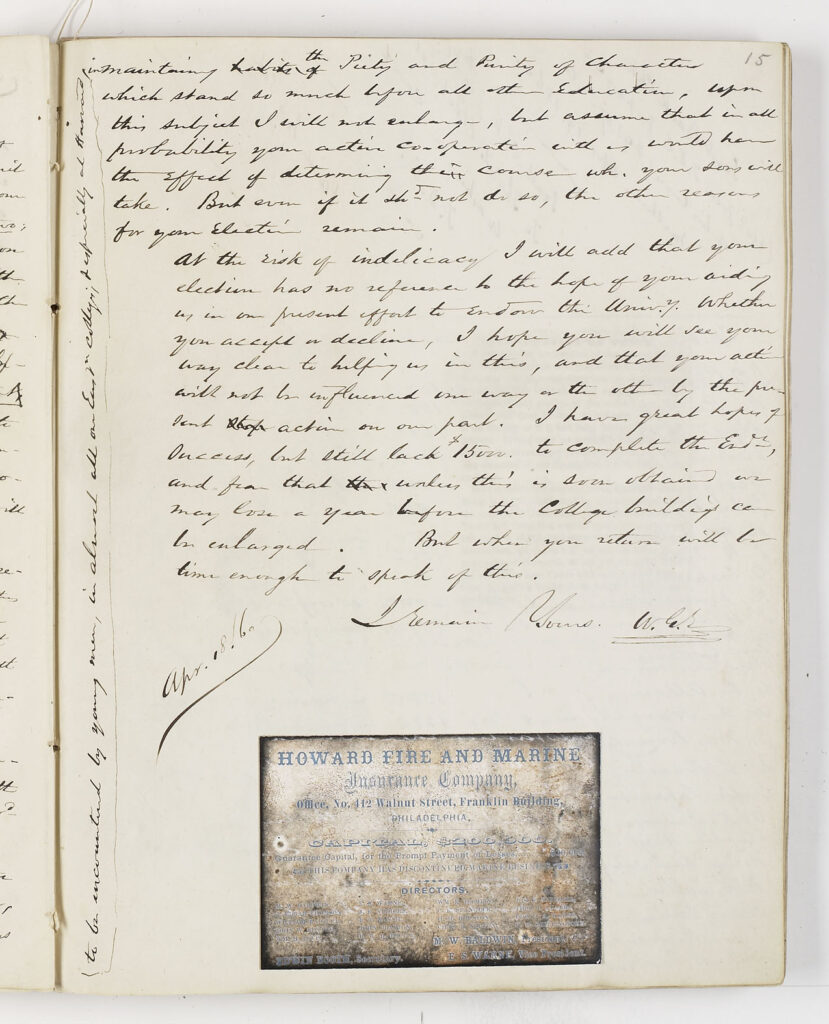
Washington University Beginnings: From the Desk of William Greenleaf Eliot
In 1853, St. Louis businessman Wayman Crow requested a charter for a proposed seminary from the state legislature of Missouri. In his request, he called it Eliot Seminary, after William Greenleaf Eliot, his good friend of twenty years. However, he did not tell Eliot beforehand, and when the charter request was granted, the news came as a total surprise.
Nonetheless, Eliot took the circumstances as an opportunity to found the “Harvard of the West.” And, after years of negotiating with politicians, fundraising, and land acquisition, Eliot, president of the board of directors, officially began the inaugural celebrations of Washington University on April 22, 1857.
The two men played different roles in founding Washington University. Crow secured a charter to establish the college, and invited Eliot, then president of the St. Louis public school board, to act as visionary and organizer. After the university’s inauguration in 1857, Eliot raised funds and acquired land for the new institution. He attempted to employ the most qualified faculty in the nation, and gave administrative positions to prominent local political and business leaders. In his letters to potential donors, he repeatedly stated his opinion that Washington University would provide future Missouri elites with a moral foundation through education.
This opinion is present in the following diary entry, wherein Eliot asked Samuel C. Davis, a successful dry goods merchant based in St. Louis, to act as university director. Eliot described the non-sectarian and non-partisan school as a “broad Christian Foundation.” The college would nominally be considered Protestant, but would welcome practicing Catholics as well. To entice Davis, Eliot once again reiterated the importance of a broadly Christian moral foundation, something that Washington University could provide for his sons better than established eastern institutions such as Harvard and Yale. It becomes evident that Eliot intended to at least involve Davis as a donor, if not as an administrator.
At the same time an idealistic and practical leader, Eliot’s unique personality made it possible for the university to survive the devastating years of the Civil War and its aftermath.
Eliot’s wide-ranging vision for the university can be seen in the language he used to encourage Davis to assume a leadership role, or at least to contribute monetarily. Eliot wrote, “We think that an opportunity is providentially offered to us, of doing one of the grandest works ever undertaken for the rising generation of St. Louis, & for the City itself, and that your position in this community and your…energy of character will greatly aid in its accomplishment.”
Although Davis declined Eliot’s offer, the minister continued to secure funding, administrators, and faculty for the fledgling institution. His urgent entreaty that St. Louisans were duty-bound to finance the university was met with success. By 1864 he reported that he had raised a total of $478,000, most of the sum donated by his Unitarian congregation.
Samuel C. Davis Esq. Inclosed [sic] you will receive official notice of your unanimous election as Director of W.U. Will you permit me to add the expression of my own very earnest desire of your acceptance. My reasons for this wish are, principally two; 1. Because we are engaged in the Establ[ishmen]t of a Univ[ersit]y, upon a broad Christian Foundation, with the hope of making it the leading Univ[ersit]y of the West, – and to do this we need the co-operation of the leading minds of all denominations of <We may also, without impropriety, call it a Protestant Institution, although Catholics work with us, to some extent,> We think that an opportunity is providentially offered to us, of doing one of the grandest works [^ever undertaken] for the rising generation of St. Louis, & for the City itself, and that your position in this community and your [keen [?]] energy of character will greatly aid in its accomplishment. 2. We are particularly desirous that your sons should re-main with us, because it will establish a precedent that others will follow, and also because they are an ornament to the Institution. In this wish you will probably agree with us, for they are doing well here, and my knowledge of both Harvard & Yale enables me to say that they are here receiving a better substantial education than they would get in either of those Universities. Their daily close intercourse with our Professors, who are among the best in the U.S., is a very different thing from the treatment they w[oul]d received elsewhere, and far more than counterbalance the over-estimated advantages of older institutions. The greater degree of safely to the moral & relig[ious]. character of young men, which belongs to home education, is very evident; but it requires personal observation to understand to be encountered by young men, in almost all our East[er]n colleges; & especially at Harvard in maintaining habits [^their] of Piety and Purity of character which stand so much before all other Education, upon this subject I will not enlarge, but assume that in all probability your active co-operation with us would have the effect of determining their course wh[ich]. your sons will take. But even if it sh[oul] d not do so, the other reasons for your election remain.
Series 01, Notebook 5, pages 14-15
For more information on Washington University’s origins, please see the online exhibit about Washington University co-founders Wayman Crow, where you can also view Washington University’s original charter online.
Also be sure to take a look at Crow’s 1853 letter to Eliot, wherein Eliot is informed about the official incorporation of “Eliot seminary.”
You can read more of Eliot’s online collection by perusing his materials via Missouri Digital Heritage.
Sources
- Rev. Dr. Earl K. Holt III, William Greenleaf Eliot: Conservative Radical;
- Candace O’Connor, Beginning a Great Work: Washington University in St. Louis, 1853-2003.

